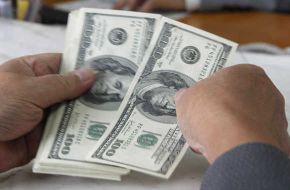 On India-Pakistan ties, Modi said India had no hesitation in discussing any outstanding issues with Pakistan within the framework of the Simla Agreement and the Lahore Declaration
On India-Pakistan ties, Modi said India had no hesitation in discussing any outstanding issues with Pakistan within the framework of the Simla Agreement and the Lahore Declaration
Prime Minister Narendra Modi on Friday said his government has carried out major reforms -- including labour reforms and reforms in insurance and defence sectors -- 'in less than 100 days' and stopped reversals Indian economy had been facing.
He said his government was disappointed that Pakistan made a spectacle of India’s efforts to improve bilateral ties when it went ahead with its talks with Kashmiri separatists.
The PM, in an interaction with Japanese media persons on the eve of his visit to Japan, touched upon several issues -- economic reforms, foreign direct investment, and India’s relations with the US, China and Pakistan.
Modi leaves for a five-day visit to Japan on Saturday, his first bilateral visit outside the subcontinent.
On India-Pakistan ties, Modi said India had no hesitation to discuss any outstanding issues with Pakistan within the framework of the Simla Agreement and Lahore Declaration.
“We, therefore, were disappointed that Pakistan sought to make a spectacle of these efforts and went ahead with talks with secessionist elements from Jammu & Kashmir in New Delhi, days before the meeting of the Foreign Secretaries,” he said.
Modi said India would continue to make efforts to build peaceful, friendly and cooperative ties with Pakistan.
“But I might add that any meaningful bilateral dialogue necessarily requires an environment that is free from terrorism and violence,” he added. He also said that New Delhi “currently” was “not taking any initiative” to review its nuclear doctrine.
On FDI, the Indian PM said: “FDI regime in India is free with minimal conditionalities”.
Modi said he felt “with the right signal of policy stability and genuineness of intent by the government, FDI influx will happen on its own as India is an excellent investment destination”.
Modi said his government is 'open to dialogue and will strive to remove all roadblocks to invite FDI' and that there aren’t many sectors now, where there are restrictions for FDI.
“Review of the FDI policy is a continuous exercise. We recently opened up the railway sector to 100 per cent FDI and 49 per cent in defence.
"We have also deregulated a number of items in defence list, which do not require licensing now,” he said, according to a transcript of the interaction.
Modi said his government’s first Budget had new initiatives.
“Under less than 100 days, we have initiated several reforms.
"Whether
"In all these areas, we have initiated several reforms,” he said.
"I think we have crossed the difficult situation that the country was facing.
"Within the first 100 days of this government, we have achieved stability and stopped the continued reversals that the country was facing.
"We have to move ahead now on the runway; I am confident that, very soon, we will attain even greater heights,” he said.
On goods and services tax, Modi said his government was 'assuaging apprehensions about possible revenue loss' raised by state governments.
He said he was confident that states will come on board, 'sooner rather than later'.
He added: “Even if it takes a little more time to convince them, in a Federal democracy, the way forward is to convince states and arrive at a consensus.”
On India’s foreign relations with China, Modi said India, Japan and China as major countries in Asia have many common interests and “we need to build on them to convert ours into an Asian Century by working together”.
He said India was considering China’s invitation to India to join the Asian Infrastructure Investment Bank as a founding member.
“India would like any new multilateral development bank to incorporate the reforms that we advocate for the existing international financial institutions.”
To a question on India-US relations, Modi said: “As the largest and oldest democracies in the world, there is also a convergence of values, which also means that it is natural for India and the US to want to partner more closely with traditional friends who share such values, such as Japan.”
On expectations from his Japan visit, Modi said the time had come for the two countries to upgrade their defence and security cooperation.
“I see in the recent changes in Japan's defence export policies and regulations a possibility to engage in a new era of cooperation in high-end defence technology and equipment,” he said.
The PM said there was significant progress in negotiations on the civil nuclear agreement; on the US-2 amphibian aircraft; and in the field of high-speed railway.
“It is my hope that my visit this time will pave the way for concrete cooperation on these fields.”
Modi noted that it is a good coincidence that both in India and Japan, after a long time, there are popular governments.
“I think this acts as a great catalytic agent when the two heads of the government whose governments enjoy a stable and clear majority, meet together,” the PM said.








